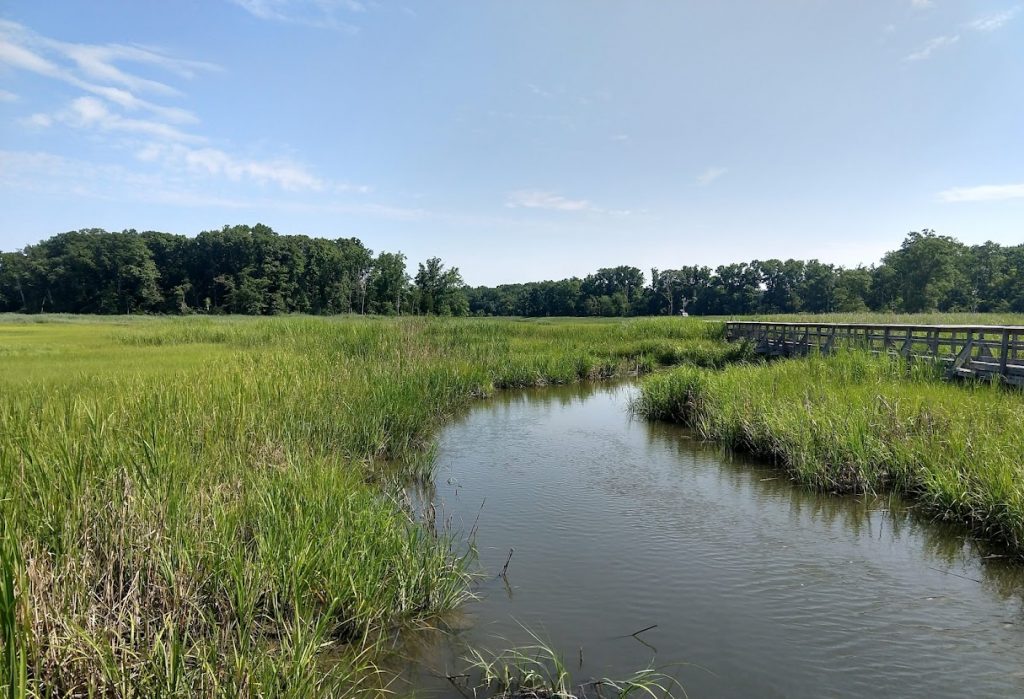The Delaware National Estuarine Research Reserve (NERR) collaborates with various partner organizations and hosts visiting scientists who conduct research of local and national significance that focuses on enhancing coastal management.
302-739-6377
The Delaware NERR is a partner on a multi-site NERRS Science Collaborative Catalyst Project titled “SETr: Developing Tools and Visualizations to Track Changes in Wetland Surface Elevation.”
This project, led by the Grand Bay NERR, uses the open-source computer programing language R to create tools to better analyze and communicate surface elevation table data collected by the National Estuarine Research Reserve System.

The DNERR collects long-term data to better understand how resilient tidal marshes are in the face of sea level rise and other environmental changes. These data were used in a NERR system-wide study to create metrices to better understand how tidal marshes are keeping pace with local sea level rise.
The published study and tool are open access and available for anyone to use.
The DNERR looks to work with partners to periodically revisit these metrices to assess changes in the resiliency of the St. Jones Reserve tidal marsh area.
Marsh crabs, such as the fiddler crab, are iconic critters in tidal marshes. However, in some locations, the excess herbivory from marsh crabs can negatively impact marshes.
Fifteen NERR sites participated in a novel study leveraging on-going data collection efforts.
The results of the study were recently published and broadly found that marsh crabs were not a major threat to tidal marshes, including at the Delaware NERR.
The Mid-Atlantic Regional Council on the Ocean is a partnership established by the Governors of New York, New Jersey, Delaware, Maryland and Virginia to address shared regional priorities and provide a collective voice in the areas of climate change adaptation, marine habitats, renewable energy, and water quality challenges and opportunities.
Water quality impairments, like plastic and microplastic pollution, negatively impact ecosystem function and quality of life in coastal communities.
Each September, the Department of Natural Resources and Environmental Control organizes Delaware’s annual Coastal Cleanup as part of the large Ocean Conservancy International Coastal Cleanup.
Several divisions within the Department captain beaches all along the coast from New Castle to Sussex County as part of this global volunteer effort to help clean our beaches.
The data collected from this event is used to help us learn more about marine debris impacts on our coasts.
The Department works with volunteers in the Adopt-A-Beach program to protect and enhance Delaware’s beaches through additional cleanup efforts while also educating and informing citizens of the responsibilities of environmental stewardship.
To prevent coastal pollution, Delaware State Parks are carry in – carry out areas.
The Department also encourages the use of reusable bags and recycling where appropriate.
Related Topics: climate coastal energy, coastal programs, collaboration, DNERR, research